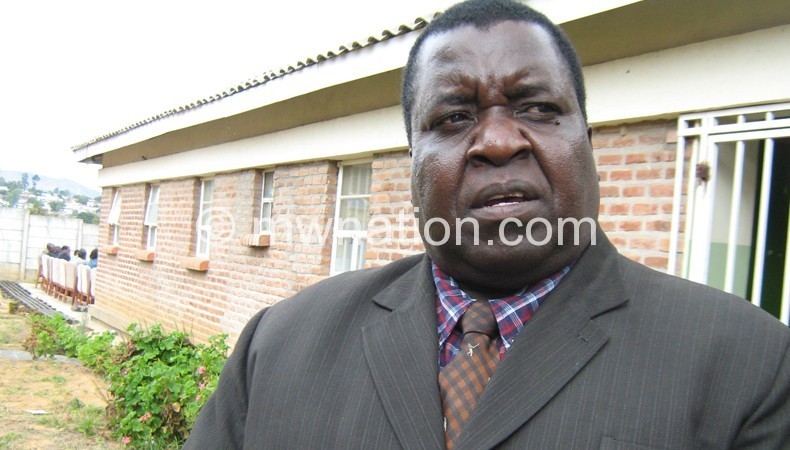Should pastors who charge for prayers Be taxed?
Nowadays, men of God, especially Pentecostal ones, are affluent. They have amassed a lot of wealth using resources acquired mostly from poor congregants who give with the hope of receiving miracles or getting spiritual satisfaction.
It is beyond doubt that the survival of organised religion depends on the open-handedness of its flock. However, when men of God demand payment for someone to be prayed upon, eyebrows are raised and elicit questions about the intentions behind. Are Christian pastors taking advantage of people’s desperation to exploit them financially?
One school of thought feels it is inappropriate to continue regarding religion as a non-profit making entity as the church today is not just a dispenser and pillar of faith, if one considers the wealth they are amassing.

Such people frown upon the arrangement where pastors make people pay for prayers and then enjoy the use of untaxed funds by taking advantage of the tax-free status of religious organisations.
Benson Mkamanga, a business consultant based in Mzuzu, believes some kind of regulatory mechanism must be introduced to ensure that pastors who charge ‘consultancy fees’ for prayers are taxed.
“Taxation of religion is based on fairness because the tendency of charging consultancy prayer fees has turned religion into a business concern. Such religious leaders attach elements of insincerity to themselves, but if they follow Jesus Christ’s’ teachings I am sure they will accept to be taxed so long as they charge consultation fees for prayers,” says Mkamanga.
He goes further to cite Matthew 22:15-22, specifically verse 21 where Jesus Christ is quoted as saying: “Then render to Caesar the things that are Caesar’s; and to God the things that are God’s”.
This, he argues, suggests that even God would be happy if they were taxed for charging fees when praying for people.
“On the other hand, it would also be appropriate because they are going against Jesus’ teachings who led a life of humility, but whereas these leaders are living in splendour and prioritise financial returns,” says Mkamanga.
Prophet Nephtali Kamowa of Living Seed Ministries in Lilongwe says taxation would not be a favourable option because charging for prayers is practised as a way of keeping away thieves and not-so-serious individuals who would simply want to test preachers.
“You just don’t wake up and say you are a pastor; there must be a genuine reason for that. Pastors must not be taken for granted and they need to attend to people who have genuine prayer needs,” says Kamowa.
Reverend MacLloyd Bwanali, general secretary of Churches of Christ, Gowa Synod, does not think taxation is the way to go, but he proposes a legislation to check if the practice has a Biblical basis.
“Government shouldn’t take that path because that will be contrary to gospel. At the same time I must emphasise that prayers are for free and nobody should charge a fee because Jesus Christ never charged money to pray for people. Charging consultation fees is like creating a business out of the gospel,” he says.
Bwanali says salvation is free and Christ never sold salvation on the cross and any attempt to impose a fee on prayers goes against the great commission as espoused by Matthew in chapter 28:18-20, which reads: “And Jesus came up and spoke to them, saying, “All authority has been given to Me in heaven and on earth. Go therefore and make disciples of all the nations, baptising them in the name of the Father and the Son and the Holy Spirit, teaching them to observe all that I commanded you; and lo, I am with you always, even to the end of the age…”
“If Jesus chased people who were selling merchandise in church He would do the same today to religious leaders who make their flock pay for prayers,” Bwanali says.
On the other hand, Reverend Alex Maulana, general secretary of the Blantyre Synod of the CCAP, argues that taxing pastors who charge money for prayers will not solve matters because “the documents will only indicate that Pastor X has taken money from somebody and it will end there after taxing and will not bring the practice to a halt.”
He explains that the solution to this first lies with the flock themselves.
“People seeking prayers should ask themselves whether their money can buy them salvation. I wonder why people really believe that God will answer their problems when they pay money to the pastor. God’s intervention cannot be enticed by money. We can end this if we stop honouring their money demands. It’s like prostitution where if men stopped chasing prostitutes they would have no clients and you won’t find them in the streets any longer. The Bible warns us of false prophets in the end times and these are such prophets,” he says.
Secondly, Maulana explains that religious leaders indulging in this practice should be cautioned by their conscience and must ask themselves if this is Biblical.
“People already give us the clergy a lot of money and materials and to charge them extra money for special prayers is very wrong,” concludes Maulana. n





